In Japanese, hito, nin, jin, ~bito, ~ri, ~to 人 are different readings of a same kanji, and the meaning of that kanji is "person," so hito, nin, jin, etc. all mean "person" in one way or another. In this article, I'll explain the differences between them and how they're used.
(don't mistake 人 with 入火六大犬水氷木本夫矢天来美奏欒爨, none of which have anything to do with it.)
hito 人
To begin with, hito 人 means "person," or "people," because of how plurals work in Japanese. Furthermore, because Japanese doesn't have definite and indefinite articles, hito can be translated as:
- hito 人
Person.
A person.
The person.
People.
The people.
- Context: Nozaki 野崎 is a manga author with two assistants: Sakura 佐倉 and Mikoshiba 御子柴. Sakura's job is filling areas with black ink. Sakura has doubts about what Mikoshiba's job is supposed to be, so Nozaki says:
- {yatte-mita} hou ga hayai kamo na
やってみた方が早いかもな
{Doing [it] [once]} may be faster. (than explaining it with words.) - mazu ore ga hito wo kaku
まず俺が人を描く
First, I draw a person. - eeto, Sakura, beta, owarimashita
えーと 佐倉 ベタ 終わりました
Erm, Sakura, black ink, finished.
ひと vs. にん, じん
The biggest difference between hito 人 and jin 人 and nin 人 is that hito 人 is a word, while jin 人 and nin 人 are not words, they're morphemes. This means you can use hito alone to say "person," because it's a word. While jin and nin are always part of other words and can't be used alone.
- hito ga shinda
人が死んだ
A person died.
People died. - hito ga kuru kamoshirenai
人が来るかもしれない
A person may come.
Another difference is that hito 人 is a kun'yomi reading while jin 人 and nin 人 are on'yomi readings. But that hardly matters.
人 after Adjective
The way hito 人 is most often used is after an adjective. By having an adjective, we qualify and narrow down what person, or people, we're talking about. For example:
- {ii} hito
いい人
A person [that] {is good}
A good person.
Good people.- ii - an i-adjective.
- {kirei na} hito
綺麗な人
A person [that] {is pretty}.
A pretty person.
Pretty people.- kirei - a na-adjective.
- {futsuu no} hito
普通の人
A person [that] {is normal}.
A normal person.
Normal people.- futsuu - a no-adjective.
- {kimi ga ai suru} hito
君が愛する人
The person [whom] {you love}.
The people [whom] {you love}.- kimi ga ai suru - a verb-headed relative clause.
The word ko 子 is often used like hito 人 in the way above, except that it has a certain nuance.
See ko 子 for details.
"Someone"
Sometimes, hito is better translated as "someone" rather than "person." After all, a "person" is "someone."
- hito ga shinda
人が死んだ
Someone died. - hito ga kuru kamoshirenai
人が来るかもしれない
Someone may come.
Another word that means "someone" in Japanese is dare ka 誰か. Although they can often be used interchangeably, there are two differences between hito 人 and dare ka 誰か that should be noted:
- dare ka is always used an "uncertain" someone—someone you don't know who—while hito can refer to a certain someone whose identity you know.
- hito can mean "people," plural, while dare ka is just "one" someone, singular.
For example:
- hito wo tasukeru
人を助ける
To help people.
To help a person.
To help someone. - dare ka wo tasukeru
誰かを助ける
To help someone. - asoko ni iru hito
あそこにいる人
The person [that's] over there.
The people [that are] over there.- We might know who is this person, or people.
- asoko ni iru dare ka
あそこにいる誰か
Someone (we don't know who) [that's] over there.
- Context: Koro-sensei teaches how to deceive people.
- sou そう
[That's right.] - hito wo damasu niwa
{aite no kimochi wo
shiru} hitsuyou ga aru
人を騙すには相手の気持ちを知る必要がある
In order to deceive someone, there's a necessity {to understand [their] feelings}.- To deceive a person, you need to understand how they think.
- {kotoba ni kufuu wo suru} hitsuyou ga aru
言葉に工夫をする必要がある
There's a necessity {to [think carefully about your] words}.- You can't just speak carelessly, you need to be scheming.
- Context: Hasegawa 長谷川 is in jail, accused of groping a woman in a train. Kagura 神楽 visits him. Hasegawa thinks Kagura doesn't believe his innocence.
- shitsukee na!!
しつけーな!!
- shitsukoi na!!
しつこいな!!
Insistent, aren't you?! (literally.)
Drop it already!!
- shitsukoi na!!
- {shinjiteru} tte itte-n-daroo ga
信じてるって言ってんだろーが
[I] am telling [you] that {[I] believe [you]}.- shinjite-iru tte itte-iru no darou ga
信じているって言っているのだろうが
- shinjite-iru tte itte-iru no darou ga
- kimochi warii-n-da yo!!
気持ちワリーんだヨ!!
Gross!!
Stop grossing me out!!- warii
ワリー - kimochi-warui
気持ち悪い
Unpleasant. Gross. Creepy.
- warii
- {hito wo shinjiteru} me janai-n-dakedo!!
人を信じてる目じゃないんだけど!!
[Those] aren't eyes [of a person] [that] {is believing someone}, though!! - {gomi wo miru} me-tsuki nanda kedo kono ko!!
ゴミを見る目つきなんだけどこの娘!!
Those are eyes [that] {are looking at trash}!!
- kono ko wa {gomi wo miru} me-tsuki nanda kedo!!
この娘はゴミを見る目つきなんだけど!!
As for this girl, [she has] a look-in-her-eyes [that] {looks at trash}!!
She's looking at me as if she were looking at garbage!!
- kono ko wa {gomi wo miru} me-tsuki nanda kedo!!
"He," "She"
Sometimes, hito 人 can be translated as "he" or "she." This happens when translating hito as "person" sounds weird, and it's more natural to translate the word as "he" or "she" instead.
For example, in romance manga, there's often a panel where a guy approaches a bishoujo 美少女, takes a look at her, is awestruck by her beauty, and thinks something like:
- uwa~ {kirei na} hito!
うわ~ 綺麗な人!
Wow... a pretty "person!" (what?)- It makes more sense to translate this as:
- Wow... [she's so pretty!]
Another case is when hito 人 comes after demonstrative pronouns kono, sono, ano この, その, あの to form the phrases kono hito, sono hito, ano hito この人,その人, あの人.
There's a difference of proximity between kosoado words such as kono, sono, and ano that doesn't translate well to English. On top of that, there's usually a visual hint (such as pointing) that makes explicitly saying "this person" and "that person" unnecessary. And normally describing the "person" as "guy" or "girl" or "woman" or "man" makes more sense in English than just saying "person." So:
- kono hito
この人
This person.
This [guy/girl right here].
[He]. [She]. - sono hito
その人
That person.
That [guy/girl next to you].
[He]. [She]. - ano hito
あの人
That person.
That [guy/girl that's not next to you].
[He]. [She].
- piasu φ ooi na kono hito...
ピアス多いなこの人・・・
- kono hito wa piasu ga ooi
この人はピアスが多い
This "person" has a lot of piercings.
This guy has a lot of piercings.
He has a lot of piercings.
- kono hito wa piasu ga ooi
- oniichan koohii tte nigai no?
おにーちゃんコーヒーってにがいの?
Oniichan, is coffee bitter?- oniichan - used by children to refer to older male teenagers sometimes.
- nigai nee
にがいねーー
It's bitter~~
- Context: the speaker is walking around when all of sudden this girl shows up and...
- chotto okane kashite kurenai?
ちょっとお金貸してくれない?
Won't [you] lend [me] a little money? - nandesuka kono hito!?
なんですかこの人!?
What's [up with] this "person"!?
What's [up with] this girl!?
What's [up with] her!? - She just asked money from a complete stranger!
ひと as Part of Other Words
As I've said before, nin and jin are always part of words, while hito can be used alone. But that doesn't mean hito is always used alone, it can be part of another word, too.
For reference, some words that include hito:
- hito-sama
人様
Other people.- In the sense of acting respectfully toward "other people," etc.
- hito-jichi
人質
Hostage.- shichi
質
Collateral. Guarantee.
- shichi
- hito-goroshi
人殺し
Murder. (or murderer.)- goroshi - rendaku 連濁 on koroshi 殺し, noun form of:
- korosu
殺す
To kill.
- hito-chigai
人違い
Different person.
Mistaking one person for another.- chigau
違う
To differ. To be different.
- chigau
- hito-mae
人前
Public. In public.
In front of people.- mae
前
Before. (in time.)
Front. (in space.)
- mae
bito 人
Sometimes, hito 人 is read as bito 人 instead when it's a suffix in a word. This happens because of a change in pronunciation called rendaku 連濁. Some examples:
- hito-bito
人々
People. Persons.- A reduplication of hito 人.
- ko-bito
小人
Little people. Little person.
Midget.Edward Elric. - koi-bito
恋人
Lover.- koi
恋
Love in the romantic sense.
- koi
- mura-bito
村-人
Villager.- mura 村
Village. - murabito ei 村人A
murabito bii 村人B
Villager A, B, etc.
Terms for random, nameless background characters. In school anime, when there's a theater play that the students have to do, some characters end up with these insignificant roles.
- mura 村
nin 人
The word nin 人 isn't a word, it's a morpheme. As such, it can't be used alone. Instead, it's part of plenty of human-related words, like:
- ningen
人間
Human. - ningyou
人形
Puppet. "Human form." - ninki
人気
Popular.- Like manga, anime, movies, clothes, etc.
- Also means "people's presence," for example:
- {ninki no nai} basho
人気のない場所
A place {without people's presence}.
A place [where] {there's nobody around}.
(somewhere you can be alone at, or where nobody can see you doing whatever you're doing there.) - Note that this isn't the same as:
- moteru
モテる
To be popular with girls. (or guys.)
- ninjou
人情
Empathy.
Human feelings. - ningyo
人魚
Mermaid. A "human-fish." - ninzuu
人数
Number of people.
When nin 人 is at the start of a word, it's pretty much impossible to tell when to read it as nin 人 instead of jin 人: you'll have to know the word, you can't guess.
However, when nin 人 when it's at the end of the word, it's usually related to what the "person" does. So if you know the stuff before nin 人 means, you may be able to guess it's read as nin 人 instead of jin 人. For example:
- shiyou-nin
使用人
Employee.- shiyou suru
使用する
To use. (so a shiyounin is a person who's used, usable.)
- shiyou suru
- shihai-nin
支配人
Manager. Executive.- shihai suru
支配する
To manage. To rule over somewhere.
- shihai suru
- kanri-nin
管理人
Manager. Administrator. Moderator.- kanri suru
管理する
To manage. To control.
(a moderator in an online forum is called a kanrinin, he kanri suru's the forum, which is under his kanri.)
- kanri suru
- hoshou-nin
保証人
The guarantor. He who guarantees.- hoshou suru
保証する
To guarantee.
- hoshou suru
- uketori-nin
受取人
The recipient. He who receives.- uke-toru
受け取る
To receive [something] [you] take.
- uke-toru
- sashidashi-nin
差出人
The sender. He who sends.- sashi-dasu
差し出す
To submit. To send.
- sashi-dasu
The morpheme nin 人 is also used to count people. (see further below.)
jin 人
The word jin 人 isn't actually a word either. It's only a morpheme. As such it can't be used alone, it's always part of another word.
The morpheme jin 人 used in plenty of human-related words, just like nin 人, and you can't tell them apart when they're at the start of the word. In these cases, you'll just have to memorize the words and that's about it. For example:
- jinsei
人生
Human life.- In Kumo Desu Ga, Nani Ka? 蜘蛛ですが、なにか?, the main character reincarnates in another world as a "spider," kumo 蜘蛛. Since she's not a person, but a spider, she jokingly refers to her life not as a jinsei but as kumosei 蜘蛛生.
- jinkou
人口
Population. "People mouths." - jinkou
人工
Artificial.
Human-made. - jinshu
人種
Race.
Human race. - jinkaku
人格
Personality. - jintai
人体
Human body. - jinrui
人類
Man-kind.
Human kind. - jinbutsu
人物
Person. (specially one that's done something or is talented.)
Figure. (emphasis on a person's traits, personality, etc.)- toujou jinbutsu
登場人物
Character. (of a novel, anime, manga, etc.)
Person-matter entering stage. (literally.)
- toujou jinbutsu
- jinken
人権
Human rights.
When jin 人 is at the end of a word, it often relates to an attribute of a person, and not what the person does, which is the case of nin 人. So, again, if you know what the stuff before jin 人 means, you may be able to guess whether it's read as jin 人 or nin 人.
- bijin
美人
Pretty woman. (almost always.)
Pretty person. (literally.)- utsukushii
美しい
Beautiful.
- utsukushii
- shinjin
新人
Newbie.- atarashii
新しい
New.
- atarashii
- roujin
老人
Old person.- oi
老い
Old age. (noun.)
- oi
- ajin
亜人
Demi-human. Sub-human.- In anime, ajin is often a term used toward a kind of monster girl.
- ashu
亜種
Subspecies.
- chishiki-jin
知識人
Intellectual.- chishiki
知識
Knowledge.
- chishiki
- shakai-jin
社会人
A member of the society. - yuumei-jin
有名人
Famous person.- {yuumei na} hito
有名な人
A person [that] {is famous}.
A famous person.
- {yuumei na} hito
There are exceptions, of course, but in general, that's it.
One interesting case is that the words for "good" and "bad" people use ~nin instead of ~jin, indicating that good and bad aren't properties of the person, but something that they do:
- akunin
悪人
A person who does evil, i.e. an "evil-doer," instead of simply an "evil person."- {warui} hito
悪い人
A bad person. An evil person.
- {warui} hito
- zen'nin
善人
A person who does good, i.e. a "good-doer," instead of simply a "good person."- {ii} hito
いい人
A good person. A nice person.
- {ii} hito
じん for Nationalities
The morpheme jin 人 is also found a suffix used for nationalities of people. It's similar to the suffixes "-ese" and "-ian" in English. For example:
- nihon-jin
日本人
Japanese person.- nihon
日本
Japan.
- nihon
- amerika-jin
アメリカ人
American person. - eikoku-jin
英国人
British person. - mekishiko-jin
メキシコ人
Mexican person - kanada-jin
カナダ人
Canadian person. - oosutoraria-jin
オーストラリア人
Australian person. - doitsu-jin
ドイツ人
German person.
Note that if you remove "person" from the examples above, it's synonymous, in English, with the language, or other stuff from those nations, but it always means a "person" from that nation, not the other stuff. To elaborate:
- nihon-jin
日本人
Japanese. (as in a "person" of Japan.) - nihon-go
日本語
Japanese. (as in the "language" of Japan.) - nihon-sei
日本製
Japanese. (as in "made" in Japan.)
The suffix jin 人 can also be added to stuff that's not nations, like:
- chikyuujin
地球人
Earthling person.- chikyuu
地球
Earth globe. ("Earth ball," literally.)
The Earth.
- chikyuu
- kaseijin
火星人
Martian person.- kasei
火星
Mars.
- kasei
- uchuujin
宇宙人
Space person.
Alien.- uchuu
宇宙
Cosmos. Space. Universe.
- uchuu
- Context: anime.
- ...e
・・・え
...eh - nan-suka?
何スか?
- nandesuka?
何ですか?
What?
- nandesuka?
- soitsu φ {semete-kita} uchuujin ka nanka-suka?
そいつ攻めて来た宇宙人か何かスか?
[This guy] is an alien who came attack [us] or something?- ...ka ...ka
〇〇か〇〇か
X or Y. (an alien "or" something in this case.)
This is the ka か parallel marker.
- ...ka ...ka
- shitsurei na!
失礼な!
Impolite, [aren't you]?!
Rude! - umare mo sodachi mo chikyuu desu yo
生まれも育ちも地球ですよ
[My place of] birth and rising is Earth.- In
west PhiladelphiaEarth, born and raised. - ...mo ...mo
〇〇も〇〇も
X and Y, too. X and even Y.
This is the mo も parallel marker.
- In
- Koro-sensei is offended because he was called an "alien" even thought he was born and raised on Earth: a genuine Earthling. Totally not an alien. Nope. (or so he claims.)
ri 人
Besides the above, the kanji can also be read as ri 人. Fortunately, this only happens when counting people.
hitori 一人
The word hitori 一人 means "one person" in Japanese. Note, however, that sometimes it can mean "alone," because when you're just "one person" there's nobody with you.
- watashi wa hitori da
私は一人だ
I'm "one person."
I'm alone.
futari 二人
The word futari 二人 means "two people" in Japanese. Note, however, that sometimes it can mean a "couple," or "us two" depending on context.
- futari kiri de ikou yo
二人きりで行こうよ
Let's go just [us] two!- i.e. it's date.
- kiri
きり
Just. Exactly. (used after counters.)
Counting People
When you're counting people in Japanese, the kanji is read as either nin 人 or ri 人 depending on the number. This can be a bit confusing at first, but it's not that complicated.
Basically, to say "one person" in Japanese, you say hitori 一人. When it's "two people," you say futari 二人. Then when it's "three people," it changes: san'nin 三人.
For reference, how to count people up to 10 in Japanese:
- hitori
一人 (1人)
One person. - futari
二人 (2人)
Two people. - san'nin
三人 (3人)
Three people. - yonin
四人 (4人)
Four people. - gonin
五人 (5人)
Five people. - rokunin
六人 (6人)
Six people. - shichinin
七人 (7人)
Seven people.- Also read nananin 七人 sometimes.
- hachinin
八人 (8人)
Eight people. - kyuunin
九人 (9人)
Nine people. - juunin
十人 (10人)
Ten people.
When there's an order of people, like a queue, the suffix me 目 is used:
- hitori-me
一人目
First person. - futari-me
二人目
Second person. - san'nin-me
3人目
Third person.
In case you're wondering, mitari 三人, yotari 四人, would be the words for "three people," "four people" using the ri 人 suffix instead of the nin 人 suffix. [人(り)の意味 - dictionary.goo.ne.jp, 2019-02-19]
But these words—mitari, yotari—are not used. Only hitori, futari are used. The rest is san'nin, yonin, etc. as I've explained already.
何人
As with all counters, -nin ~人 can come after nan 何 to say "how many." Awkwardly, -jin ~人 can also come after nani 何 to ask "what" nationality someone is. These two things are spelled the same way, but read differently.
- nan'nin?
何人?
How many people? - nani jin?
何人?
What nationality?
Other Readings
The kanji for hito 人 can also be read in a number of other ways. But do not panic! This mostly happens in names of people.
To have an idea, 人 is read as to 人 in the name of the protagonist of Sword Art Online:
- 桐ヶ谷 和人
Kirigaya Kazuto.
Radical
There are two kanji components that derive from the hito 人 kanji.
The first is the ninben 人偏, the 亻, which looks like the number 1, and appears to the side, as in: 仲, 休, 他, and so on[人偏 - 精選版 日本国語大辞典 via kotobank.jp, accessed 2021-03-13].
The second is the hitogashira 人頭, which looks like a circumflex ^, and appears at the top, as in: 今, 企, 命, and so on[人頭 - 精選版 日本国語大辞典 via kotobank.jp, , accessed 2021-03-13].
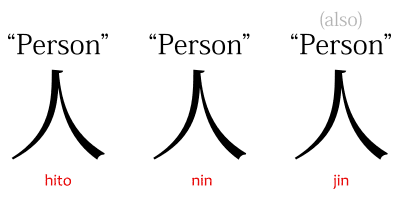

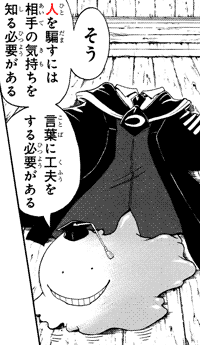
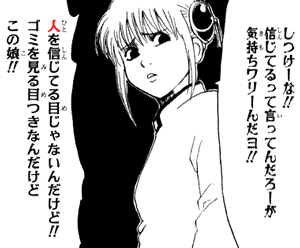
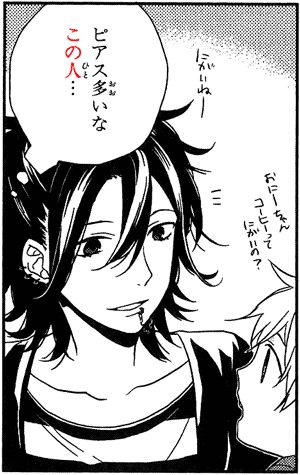
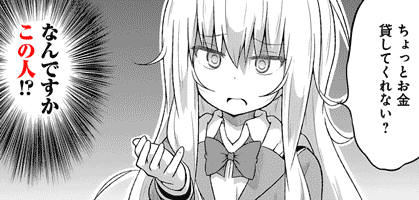
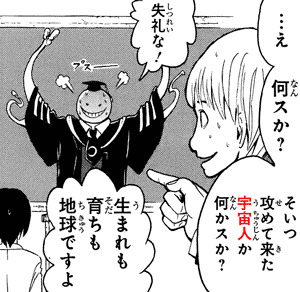
I want to get a kanji tattoo saying Jupiter person Jin. I don't know Japanese, what say you? Email my username at hotmail dot com.
ReplyDeleteMokusei 木星 is how you say "Jupiter" in Japanese. So "Jupiter-ian" (someone from Jupiter) should be mokusei-jin 木星人.
DeleteHere's a large image of the word with different fonts http://i.imgur.com/unPgZjm.png
I wouldn't advise it, though. Getting a kanji tattoo when you don't know Japanese sounds like a bad idea.
Just pointing out that 人数 is read as "ninzuu", not "ninsuu".
ReplyDeleteYou're right. Thanks.
Delete